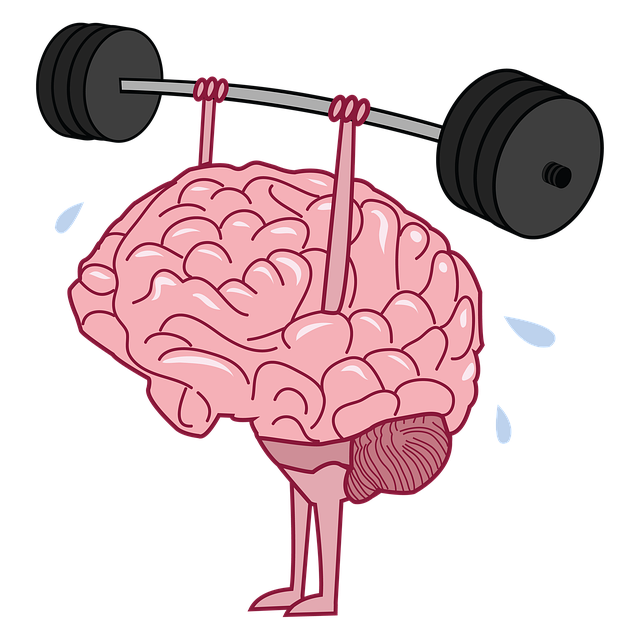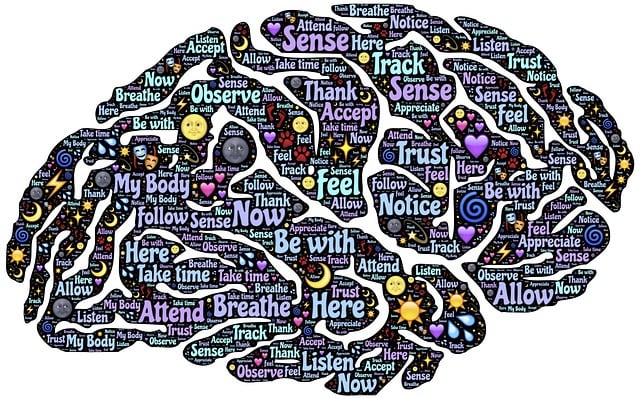Stress in children often manifests subtly, leading to internalized issues like anxiety and physical symptoms. Workshops addressing childhood stress should include age-appropriate activities focusing on self-awareness, positive affirmations, visualization, and social skills training. When dealing with spiritual-religious issues, creating a safe space is vital for open dialogue through role-playing scenarios. Integrating mental wellness coaching enhances these programs by teaching conflict resolution strategies. This holistic approach combines spiritual insights with evidence-based therapies like mindfulness and meditation to empower individuals, prevent burnout, and manage moods, fostering resilience through creative outlets like art therapy or music.
Stress management workshops play a crucial role in equipping children with coping mechanisms, especially when addressing spiritual and religious concerns. This article delves into three key aspects: understanding the unique stressors faced by children, designing workshop content tailored to spiritual-religious issues, and practical strategies for facilitators. By exploring these areas, we aim to provide valuable insights for creating therapeutic spaces that foster resilience in young minds, offering effective therapy for children navigating complex emotions.
- Understanding Children's Stress and Its Impact
- Designing Effective Workshops for Spiritual-Religious Issues
- Practical Strategies for Facilitating Stress Management Workshops
Understanding Children's Stress and Its Impact

Children experience stress just like adults, but their responses and expressions can differ significantly. Understanding a child’s stress often involves recognizing subtler signs, as they may not vocalize or display tension in overt ways. Youngsters might internalize their feelings, leading to issues like anxiety, depression, or even physical manifestations such as headaches or stomachaches. This is especially true when they grapple with spiritual-religious concerns, peer pressure, academic expectations, or changes in routines.
Workshops designed to manage stress in children should incorporate age-appropriate activities and techniques. Self-awareness exercises can help them identify their emotions and triggers. Mind over matter principles, such as positive affirmations and visualization, can empower kids to manage their responses to stressful situations. Additionally, social skills training is vital, teaching them how to communicate effectively, build resilience, and foster healthy relationships, all of which contribute to a child’s overall well-being.
Designing Effective Workshops for Spiritual-Religious Issues

When designing workshops to address spiritual-religious issues, especially for children, it’s essential to create a safe and supportive environment that encourages open dialogue. Incorporating activities that foster understanding and acceptance is key. For instance, role-playing scenarios can help kids navigate complex questions and emotions related to their faith or beliefs. These exercises allow them to explore different perspectives, enhance their problem-solving skills, and promote empathy.
Incorporating mental wellness coaching programs within these workshops can significantly contribute to the overall effectiveness. By teaching children positive thinking techniques and conflict resolution strategies, they gain valuable tools to manage stress and navigate interpersonal challenges. This holistic approach ensures that not only spiritual-religious aspects are addressed but also their mental health and emotional well-being are nurtured, creating a balanced and resilient individual.
Practical Strategies for Facilitating Stress Management Workshops

Stress management workshops are effective tools for empowering individuals to cope with life’s challenges. Facilitators should incorporate practical strategies that cater to diverse needs, including children and those grappling with spiritual-religious issues. One powerful approach is integrating mindfulness techniques, such as deep breathing exercises and meditation, which can significantly reduce stress levels and enhance overall well-being. These practices help participants develop inner strength and resilience, enabling them to navigate stressful situations with greater ease.
Additionally, facilitators can offer tailored activities for burnout prevention and mood management. This might include creative outlets like art therapy or music, which provide healthy channels for expression. By combining evidence-based therapies with spiritual-religious insights, workshops can offer comprehensive solutions, fostering a sense of balance and empowerment.
Stress management workshops, tailored to address children’s unique spiritual and religious concerns, offer a powerful tool for enhancing their well-being. By combining insights from understanding childhood stress with practical strategies, facilitators can create safe spaces for young minds to explore and manage their emotions. These sessions not only equip children with healthy coping mechanisms but also foster resilience and promote overall mental health. Through evidence-based techniques and a sensitive approach to spiritual-religious issues, workshops can serve as transformative experiences, providing therapy and support tailored to each child’s needs.














